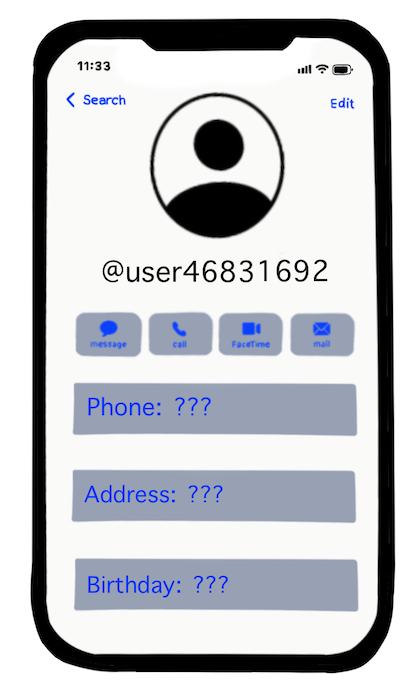Internet users defy judgement, craft lifelong friendships

Ava Yungbluth | The Chronicle
Students at Mason High School are linking up with new friends.
Through social media, gaming or other platforms, individuals are making new online connections, simply with a few clicks or taps. While the internet has often been regarded as dangerous or unreliable, specifically in terms of crafting relationships or sharing information, these newfound and carefully formed friendships have offered teenagers some positivity on sometimes isolating platforms, such as Instagram or Twitter.
Junior Mia Hillman has had an online presence since 2017 and said she is grateful to have the world at her fingertips when it comes to making new friends online. Excited by the opportunities to meet people from around the globe that she would not have otherwise, Hillman said she sees few limits when it comes to meeting others outside of her community.
“It’s just good to get to meet people you wouldn’t have otherwise met,” Hillman said. “It’s interesting to get that firsthand experience [seeing things they do] that are different from your own life.”
Hillman’s first online friendship was made on the app Musical.ly five years ago and has, according to Hillman, grown stronger ever since. Finding that they both enjoy creating art, the two soon-to-be friends followed and liked each other’s content, deciding to exchange numbers later on. In Hillman’s eyes, they “just worked”. Through this bond, she said they have been able to stay close and in touch.
“They are probably one of my oldest friends, I would say at this point,” Hillman said. “They’ve helped me through some tough times, I’ve helped them through tough times, we always have each other’s backs.”
Though their relationship has faced similar experiences to in-person friendships, such as having FaceTime calls to catch up or collaborating on a project together, Hillman said that she and her friend continue to be invalidated by others who haven’t had the same experiences. According to Hillman, without having background knowledge, many individuals place incorrect judgments on the experience of having virtual friendships.
The struggle of invalidation towards internet friendship is one not unfamiliar to junior Sara McManes, who has felt it first-hand. She noted that many people tend to say that such connections online “aren’t real friends.” McManes said she disagrees, believing that her online friendships are not that different from those made in real life, only differing due to the former occurring through a screen.
“People [do not] really understand the fact that these are actual friendships that have been built for a while depending on the friendship,” McManes said. “Yes, they are my real friends, and I think people are becoming more open to it because it’s becoming a more prominent thing in this day and age.”
One of the potential reasons behind a person’s invalidation of online friendship is the lack of shared common knowledge between the two friends, such as awareness about school activities or local events. Though that may cause some initial confusion, freshman Kenna McConville said that she believes that such distinguished obstacles often provide enrichment and conversation material with online connections.
“I think something that [makes these friends special] is that they’re not here in the school,” McConville said. “You can tell each other anything openly about what’s going on in your social life and it doesn’t really have an effect on anyone else around you.”
An in-person friendship connection is often at risk when the other person moves far away, while, through an online friendship, such obstacles are less prominent in impeding communication. Hillman said she believes that initially not having known the person in real life from the start is what led to keeping in such close touch with her friend, though never meeting them face-to-face. She said it created a mindset different from those she may have with in-person friends, reminding her that this person is unique in comparison.
“We’ve never seen each other in person,” Hillman said. “[No factor is ever big enough to] change our relationship. We can talk anywhere, anytime.”
McConville, comparatively, coordinated a time with her online friend from Pennsylvania to visit Ohio for them to spend time with one another, McConville taking her in her friend group to go to homecoming. She enjoyed seeing a new side of her friend, saying that one’s “online self” is most likely always going to slightly differ from their in-person self. She said their group did everything they could to ensure that their friend felt just as comfortable with them in person as they did online.
“As long as you both are being very authentic to each other and like really genuinely getting to know each other, meeting in person is so much fun,” McConville said. “[My other friends and I] always try to make the other person feel welcome and comfortable.”
Like McConville, McManes has had the chance to meet two of her friends in person. One from Florida drove up to see and hang out with McManes, if only for a few days. For the other friend, McManes traveled outside of the United States. While on her annual trip to Denmark, that friend flew from her home of England to Denmark to meet up. Seeing her companions in a three-dimensional aspect was monumental, according to McManes, and something that will stick with her for a long time.
“It was nice to hug these people,” McManes said. “We’ve had such a huge friendship, so it’s like, ‘Wow, I get to actually hug you and tell you how much I love you to your face.’”
